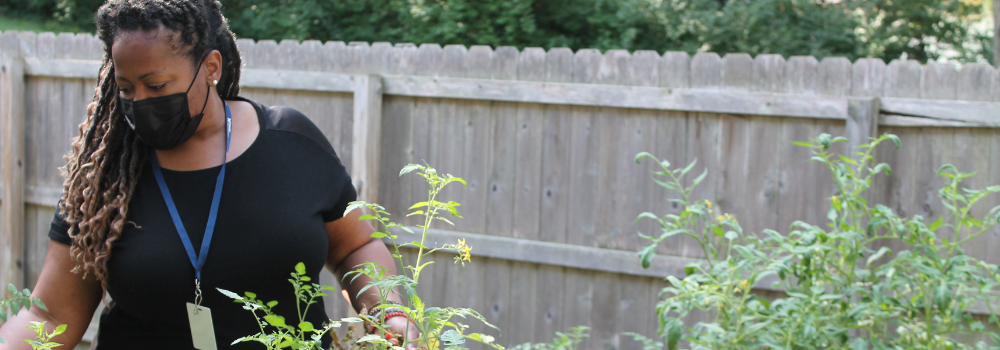
Children who come to Robert’s Place Emergency Shelter are experiencing some of the most difficult moments in their young lives. That anxiety, trauma and fear can make it difficult for a child to open up to another new adult. But the staff at Robert’s Place makes it their goal to provide a safe space for healing.
“I often say to my team ‘we have 72 hours to plant a seed of positivity,’” says Chanda Wright, Robert’s Place Manager.
The team is finding a new and very literal way to plant that seed – by getting the children involved in the Robert’s Place Garden. While the garden has existed for years, it had become overgrown. When Wright joined the Robert’s Place team in 2019, she was inspired to bring the garden back to life.
“Our hope is that our clients learn the process of nurturing, recognizing and celebrating progress at all stages."
Wright and the rest of the Robert’s Place team have been working with Kansas City Community Gardens and other Wyandot BHN staff to restore the garden. And of course, the children who come through Robert’s Place are a big part of the garden as well – asking what’s new in the garden and what they can plant.
“The children have gotten a kick out of being a part of this process,” says Wright. “Some children were slow to buy in, but we have seen these children become more excited along the garden’s growth journey.”
The staff and children at Robert’s Place are currently waiting on a harvest of tomatoes, spinach, onions and baby bell peppers. They have already been able to pick lettuce and potatoes from the garden and put them to use. Last year, the garden produced a bounty of tomatoes, which was used to create a tomato-forward feast.
“We decided to have a garden party with the thought of celebrating every small success,” says Wright. “We prepared all the dishes using tomatoes. Staff and youth decided to make fried green tomatoes, pasta salad with garden veggies, salsa and chips and tomato and tuna sandwiches. A delicious success!”
Wright says she learned about horticultural therapy before coming to PACES and knew that it could be a part of the healing process. She hopes the garden will create a therapeutic atmosphere for youth and staff alike and be a place where hope and healing can happen.
“Our hope is that our clients learn the process of nurturing, recognizing and celebrating progress at all stages and to hold an understanding that even the things that appear perfect require effort to upkeep.”
